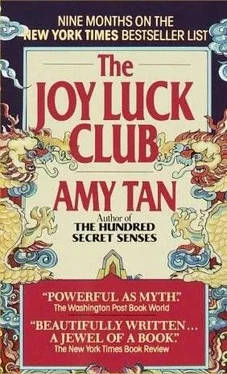While thinking this, I was startled by a sudden clang! clang! clang! followed by music. On the wall opposite the bed was a big wooden clock with a forest and bears carved into it. The door on the clock had burst open and a tiny room full of people was coming out. There was a bearded man in a pointed cap seated at a table. He was bending his head over and over again to drink soup, but his beard would dip in the bowl first and stop him. A girl in a white scarf and blue dress was standing next to the table and she was bending over and over again to give the man more of this soup. And next to the man and girl was another girl with a skirt and short jacket. She was swinging her arm back and forth, playing violin music. She always played the same dark song. I can still hear it in my head after these many years-ni-ah! nah! nah! nah! nah-ni-nah!
This was a wonderful clock to see, but after I heard it that first hour, then the next, and then always, this clock became an extravagant nuisance. I could not sleep for many nights. And later, I found I had an ability: to not listen to something meaningless calling to me.
I was so happy those first few nights, in this amusing house, sleeping in the big soft bed with my mother. I would lie in this comfortable bed, thinking about my uncle's house in Ningpo, realizing how unhappy I had been, feeling sorry for my little brother. But most of my thoughts flew to all the new things to see and do in this house.
I watched hot water pouring out of pipes not just in the kitchen but also into washbasins and bathtubs on all three floors of the house. I saw chamber pots that flushed clean without servants having to empty them. I saw rooms as fancy as my mother's. Yan Chang explained which ones belonged to First Wife and the other concubines, who were called Second Wife and Third Wife. And some rooms belonged to no one. "They are for guests," said Yan Chang.
On the third floor were rooms for only the men servants, said Yan Chang, and one of the rooms even had a door to a cabinet that was really a secret hiding place from sea pirates.
Thinking back, I find it hard to remember everything that was in that house; too many good things all seem the same after a while. I tired of anything that was not a novelty. "Oh, this," I said when Yan Chang brought me the same sweet meats as the day before. "I've tasted this already."
My mother seemed to regain her pleasant nature. She put her old clothes back on, long Chinese gowns and skirts now with white mourning bands sewn at the bottoms. During the day, she pointed to strange and funny things, naming them for me: bidet, Brownie camera, salad fork, napkin. In the evening, when there was nothing to do, we talked about the servants: who was clever, who was diligent, who was loyal. We gossiped as we cooked small eggs and sweet potatoes on top of the houlu just to enjoy their smell. And at night, my mother would again tell me stories as I lay in her arms falling asleep.
If I look upon my whole life, I cannot think of another time when I felt more comfortable: when I had no worries, fears, or desires, when my life seemed as soft and lovely as lying inside a cocoon of rose silk. But I remember clearly when all that comfort became no longer comfortable.
It was perhaps two weeks after we had arrived. I was in the large garden in back, kicking a ball and watching two dogs chase it. My mother sat at a table watching me play. And then I heard a horn off in the distance, shouts, and those two dogs forgot the ball and ran off barking in high happy voices.
My mother had the same fearful look she wore in the harbor station. She walked quickly into the house. I walked around the side of the house toward the front. Two shiny black rickshaws had arrived and behind them a large black motorcar. A manservant was taking luggage out of one rickshaw. From another rickshaw, a young maid jumped out.
All the servants crowded around the motorcar, looking at their faces in the polished metal, admiring the curtained windows, the velvet seats. Then the driver opened the back door and out stepped a young girl. She had short hair with rows of waves. She looked to be only a few years older than I, but she had on a woman's dress, stockings, and high heels. I looked down at my own white dress covered with grass stains and I felt ashamed.
And then I saw the servants reaching into the backseat of the motorcar and a man was slowly being lifted by both arms. This was Wu Tsing. He was a big man, not tall, but puffed out like a bird. He was much older than my mother, with a high shiny forehead and a large black mole on one nostril. He wore a Western suit jacket with a vest that closed too tightly around his stomach, but his pants were very loose. He groaned and grunted as he heaved himself out and into view. And as soon as his shoes touched the ground, he began to walk toward the house, acting as though he saw no one, even though people greeted him and were busy opening doors, carrying his bags, taking his long coat. He walked into the house like that, with this young girl following him. She was looking behind at everyone with a simpering smile, as if they were there to honor her. And when she was hardly in the door, I heard one servant remark to another, "Fifth Wife is so young she did not bring any of her own servants, only a wet nurse."
I looked up at the house and saw my mother looking down from her window, watching everything. So in this clumsy way, my mother found out that Wu Tsing had taken his fourth concubine, who was actually just an afterthought, a foolish bit of decoration for his new motorcar.
My mother was not jealous of this young girl who would now be called Fifth Wife. Why should she be? My mother did not love Wu Tsing. A girl in China did not marry for love. She married for position, and my mother's position, I later learned, was the worst.
After Wu Tsing and Fifth Wife arrived home, my mother often stayed in her room working on her embroidery. In the afternoon, she and I would go on long silent rides in the city, searching for a bolt of silk in a color she could not seem to name. Her unhappiness was this same way. She could not name it.
And so, while everything seemed peaceful, I knew it was not. You may wonder how a small child, only nine years old, can know these things. Now I wonder about it myself. I can remember only how uncomfortable I felt, how I could feel the truth with my stomach, knowing something terrible was going to happen. And I can tell you, it was almost as bad as how I felt some fifteen years later when the Japanese bombs started to fall and, listening in the distance, I could hear soft rumbles and knew that what was coming was unstoppable.
A few days after Wu Tsing had arrived home, I awoke in the middle of the night. My mother was rocking my shoulder gently.
"An-mei, be a good girl," she said in a tired voice. "Go to Yan Chang's room now."
I rubbed my eyes and as I awoke I saw a dark shadow and began to cry. It was Wu Tsing.
"Be quiet. Nothing is the matter. Go to Yan Chang," my mother whispered.
And then she lifted me down slowly to the cold floor. I heard the wooden clock begin to sing and Wu Tsing's deep voice complaining of the chill. And when I went to Yan Chang, it was as though she had expected me and knew I would be crying.
The next morning I could not look at my mother. But I saw that Fifth Wife had a swollen face like mine. And at breakfast that morning, in front of everybody, her anger finally erupted when she shouted rudely to a servant for serving her so slowly. Everyone, even my mother, stared at her for her bad manners, criticizing a servant that way. I saw Wu Tsing throw her a sharp look, like a father, and she began to cry. But later that morning, Fifth Wife was smiling again, prancing around in a new dress and new shoes.
In the afternoon, my mother spoke of her unhappiness for the first time. We were in a rickshaw going to a store to find embroidery thread. "Do you see how shameful my life is?" she cried. "Do you see how I have no position? He brought home a new wife, a low-class girl, dark-skinned, no manners! Bought her for a few dollars from a poor village family that makes mudbrick tiles. And at night when he can no longer use her, he comes to me, smelling of her mud."
Читать дальше












